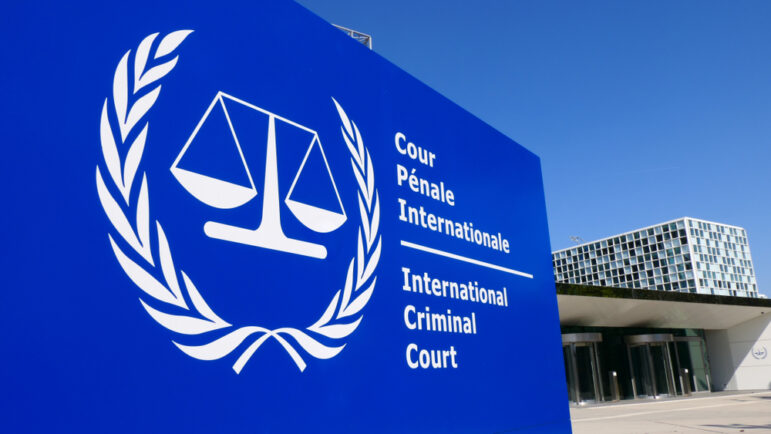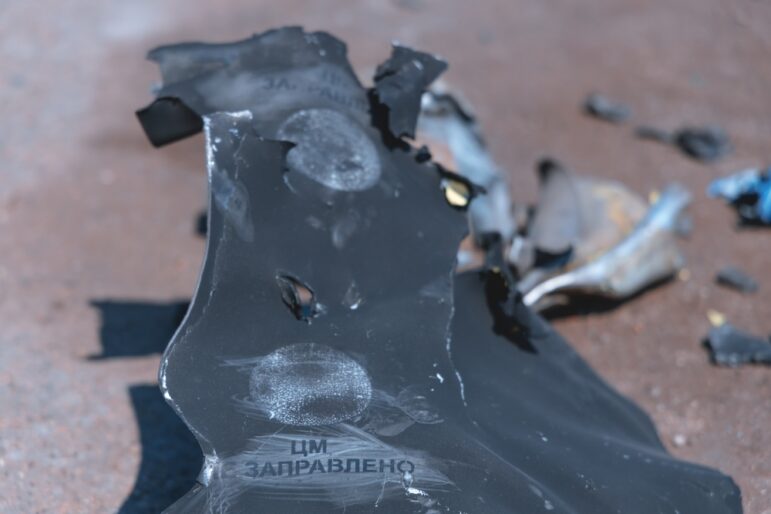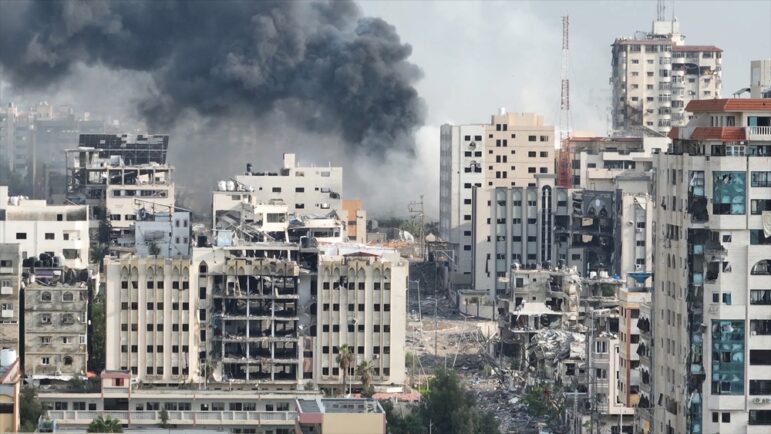

Smoke rises from destroyed buildings in northern Gaza, bombarded by Israel in March 2024. Image: Shutterstock
+972 and Local Call: Investigating Israel at War
The investigative journalist Yuval Abraham says he has two types of sources these days: whistleblowers from within the Israeli security forces who want fellow citizens to know what is going on, and those who are open and candid about what is happening because they feel all actions in this war are justified.
“When I approach some people, some of the sources I spoke with, they were drafted or re-drafted into the intelligence community after October 7,” the date of the 2023 Hamas attack that led to the subsequent assault on Gaza, he said. While they had been motivated by the horrors of that massacre to sign up, they “very quickly realized they were now involved in atrocities.”
“This is the ideological group — people like whistleblowers — they feel have committed crimes, they have harmed Palestinian families, they have killed people and they wanted the Israelis to know about it,” Abraham explained. The other group, he said, who hold almost the opposite perspective, “don’t see what’s wrong with what they did.”
“I call them. I’m an Israeli, I have a good Israeli accent, I’m not threatening, they just talk,” he said at a panel at the International Journalism Festival in Perugia in April, detailing how he gets people to open up to him. “When you are curious and you want to know, sometimes people agree to do it.”
Abraham, who was the co-director and one of the key figures in the Oscar-winning documentary “No Other Land,” is an investigative journalist writing for +972, an independent, nonprofit magazine run by Palestinian and Israeli journalists, and its sister publication Local Call, a Hebrew-language news site.
The outlets have published a series of investigations detailing the use of AI in the Israeli strikes on Gaza, reports into inmate accounts of torture in Israeli prisons, and unflinching coverage of the devastation in Gaza.
For its coverage of the war and its impact, +972 was recognized in April 2025 with the 2025 Louis M. Lyons Award for Conscience and Integrity in Journalism by the fellows of the Nieman Foundation at Harvard University.

The 2025 class of Nieman Fellows honored +972’s coverage of Israel at war with the Lyons Award for Conscience and Integrity in Journalism. Image: Screenshot Nieman Foundation
IJF panel host Francesca Caferri, a foreign correspondent for La Repubblica, pointed out that while Israeli journalism can be “very strong, very effective, very interesting when it comes to corruption, many issues, but not when it comes to the Palestinian issue. Most of the media close their eyes and don’t see what is going on.” So, how did +972 and Local Call manage to fill the gap?
“The Israeli media — it’s not only that they are not interested in looking for stories that are critical of the military, that are critical of the war, that are looking at human rights abuses and crimes. I think even outlets that are more left-leaning or critical often tend to focus on individual actions of soldiers,” said Abraham. “What connects much of our work is that we are focused on the protocol itself. On the rules themselves. We are looking at the decisions that are taken high up that go down. To me, that’s the most important and most deadly for the Palestinians in Gaza.”
“In Gaza, we are interested in the collateral damage,” he added. “And not many journalists are interested in that.”
Operating with Censors Peering Over Your Shoulder
Meron Rapoport, an editor at Local Call, is an award-winning investigative journalist with over 30 years of experience in the Israeli media, including at Haaretz, Israel’s oldest daily newspaper.
He says that, alongside the usual challenges of producing investigative reporting in a time of conflict, in Israel they are also always having to consider if a story will make it past the censors.
“Israel is the only country, at least in what’s called Western democracies, where anything involving the army, some kind of international relations, oil supply to Israel, any news has to go through military censorship under the Ministry of Defense… and you don’t know what will be the outcome.”
“You don’t know what could be published. The problem is not only what has been deleted, or interfered [with], the problem is the self-censorship that you apply on yourself,” he explained. “There are so many things we don’t even investigate because we know they will not be published.”
As an example of this censorship’s impact, he detailed one story that detailed how the Israeli military was using so-called bunker buster bombs that release lethal gas to target and kill militants in the Gaza tunnel networks.
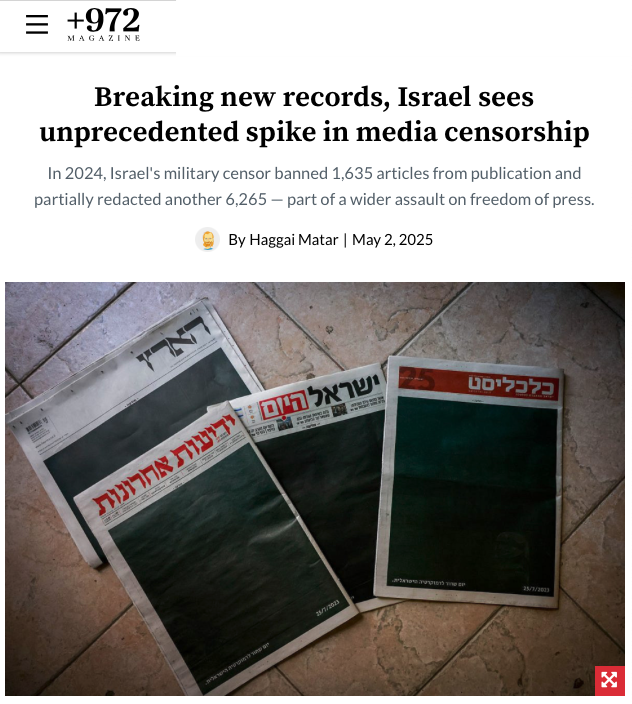
In a data analysis, +972 found Israeli government censorship of press articles doubled between 2023 and 2024. Image: Screenshot, +972
“This is very sensitive for a Jewish state to use gas as a lethal weapon,” said Rapoport. “We had a lot of problems with the censorship when we first published, in January 2024. Later on, as it was revealed that Israeli hostages had also died — suffocated by this gas — the media started talking about it,” he said. “Then the censorship allowed us to have a much more detailed story. It’s not only the fact that news is being barred from being published, it’s self-censorship. In all the media, including us.”
When they dug into the data, they found that the war had led to a widespread censorship crackdown by the Israeli government.
In 2023, there were 613 articles blocked completely by the censors and more than 2,700 in which censorship “interfered,” he said. In 2024, they found, both figures had more than doubled.
Refusing to Stand Silent
Laurent Richard, the founder of Forbidden Stories, praised +972 and Local Call for their work in a separate panel on Gaza. “They are doing an amazing job,” he said. “We should think of them, they are operating from a very difficult space.”
From the difficulties of reporting what is happening in Gaza — with reporters barred from accessing the strip — to the domestic challenges of reporting on Israel from within, both outlets have faced numerous challenges.
Ghousoon Bisharat, the editor-in-chief of +972, said that in a highly divisive and politicized media environment, the two groups had succeeded in part because they had brought journalists from both communities together.
“In all these investigations, Palestinian journalists and editors were involved. Because we are a binational media outlet, on every piece, in many pieces, we have Jewish Israelis and Palestinians involved in different stages of the reporting and editing,” she pointed out. “That makes a whole difference to the way the investigation is framed.”
With a team of just six full-time staff and Abraham working between the two outlets, +972 has had to rely on a network of freelance contributors. Staffing and funding are tight, but being independent in a time of war brings opportunity, too, she added.
“Being independent is allowing us to operate outside the mechanism of interests of corporate media… We are genuinely and fiercely independent, and totally in charge of our editorial position,” she said, adding that readership is up 10-fold since October 2023.
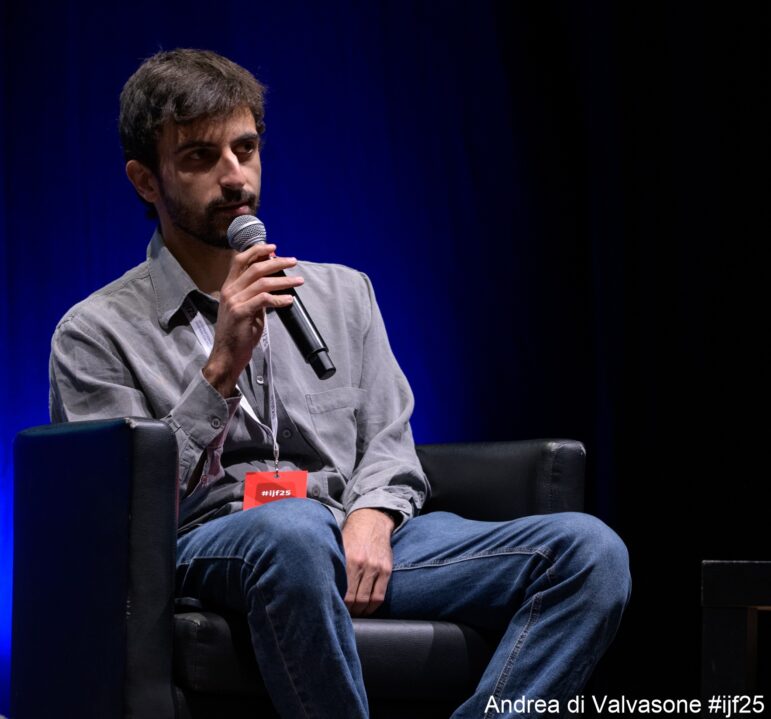
Yuval Abraham speaking at an IJF25 panel in Perugia, Italy. Image: IJF25, Andrea di Valvaone
“That comes with lots of responsibility. It’s even scary sometimes,” she acknowledged. “But these investigations showed the importance of independent media. Not only in Israel-Palestine. But all around the world. Especially independent media that hold the highest professional standards, and that is committed to clear and uncompromising political principles.”
The deadly conflict in Gaza has wrought a devastating toll on Palestinian journalists, of whom 180 have been killed so far, according to the CPJ. Local Call’s Rapoport said that had inevitably impacted their network and left “a huge gap to fill.”
The ban on foreign reporters entering Gaza meant all the information outlets like his were able to get from the strip, he says, was due to “very courageous Palestinian journalists.”
“We had a lot on our shoulders because of this special role,” he added. “Innocent people are being killed in Gaza every day. We did not stop it, but at least we made some awareness around the world, and maybe even in Israel, about what’s going on.”
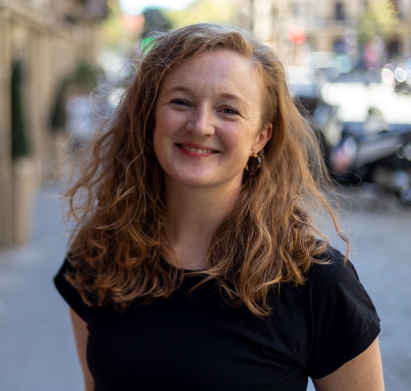 Laura Dixon is a senior editor at GIJN, based in the UK. She has reported from Colombia, the US, and Mexico, and her work has been published by The Times, The Washington Post, and The Atlantic, among others. She is a former staff reporter of The Times in London, and has received grants and fellowships from the IWMF, the Pulitzer Center, and Journalists for Transparency.
Laura Dixon is a senior editor at GIJN, based in the UK. She has reported from Colombia, the US, and Mexico, and her work has been published by The Times, The Washington Post, and The Atlantic, among others. She is a former staff reporter of The Times in London, and has received grants and fellowships from the IWMF, the Pulitzer Center, and Journalists for Transparency.


